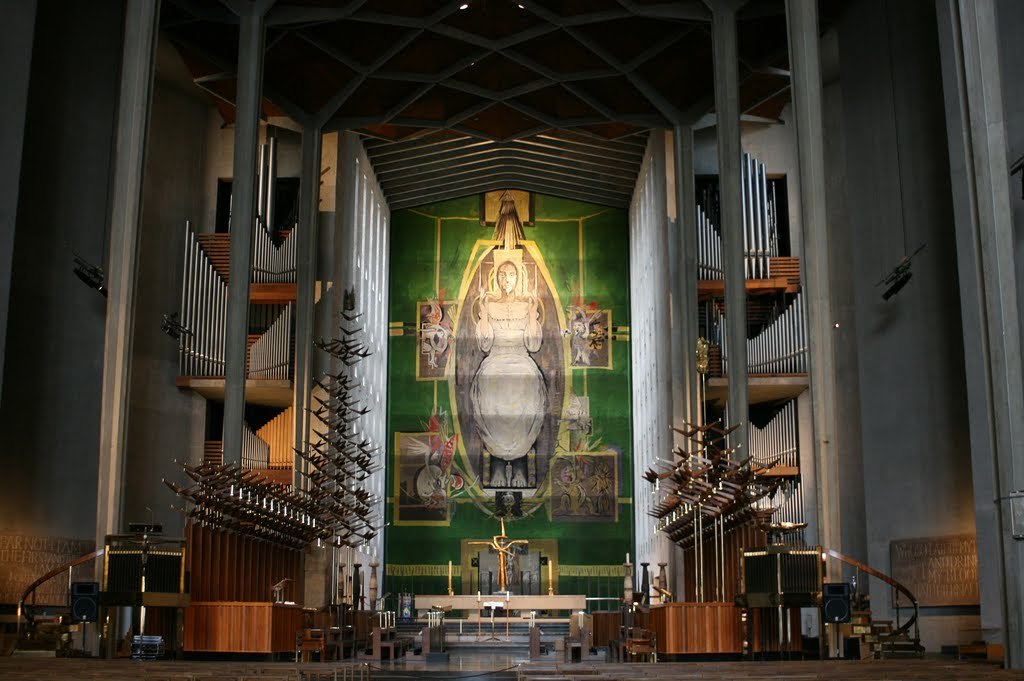All Clergy Great and Small
 Justin Dodd
Justin Dodd  Wednesday, June 27, 2012 at 02:20PM
Wednesday, June 27, 2012 at 02:20PM The words still fill me with some trepidation to this day. They are one of the many vows taken before the Bishop and people of God at a priestly ordination. “Will you endeavour to fashion your own life and that of your household according to the way of Christ, that you may be a pattern and example to Christ's people?” There is some reassurance in the response you are required to give: “By the help of God, I will.”
God’s help is certainly needed for priesthood and indeed for any vocation in the church. You are of course given some preparation and ongoing support – theological degrees, various courses in pastoral management, retreats, leadership conferences, continuing ministerial education of all forms, annual reviews and of course books. This is all very good and necessary however, none of it can actually make you, well, spotlessly divine.
Every pastor must confront the reality that they are human, hopefully sooner rather than later. We work for God and he has already sent a saviour. Even harder is accepting that your long-term health and that of your family is largely dependant on whether you are prepared to be vulnerable, willing to accept the help of God and your community. The response in the Ordinal should actually read, “With the indispensible help of God and others, I will”

Whilst an awareness of being human and frail is now part and parcel of priestly formation, the public perception of clergy has not kept pace. It was this very insight that provided creative inspiration for James Wood and Tom Hollander the co-creators of the popular TV sitcom “Rev”. Last week I was at a lunch meeting with other clergy and James Wood was the guest speaker. He explained how the tension between the public world and less-than-perfect private world of clergy provided rich terrain for pithy comedy. What’s more, by situating the series in the melting pot of London’s East End, the messiness of humanity was unavoidable.
I carefully watched my colleagues as James spoke about how he mined the clash of people’s expectations with the reality of clergy life for comedy gold. Everyone nodded knowingly. The scene where Adam Smallbone eventually swears at the jeering workmen on the scaffolding was particularly popular. “So liberating,” whispered one brother priest. It soon became apparent that what he was saying touched on the anxiety we all shared. Whether we liked it or not, there was a burden of holy living placed on our shoulders at ordination.
So, for me there is indeed something very liberating about the show’s unvarnished insight into the challenges of priestly life – vicars do loose their tempers, develop secret crushes on attractive head teachers, occasionally swear in moments of frustration, get caught up in hubris, have sex and even marry wives who resent people constantly hanging around their kitchens. We clergy love Adam Smallbone because he is portrayed as irrepressibly human.
And this is the true genius of the show. It’s not just honest humour but the brave poignancy of the production that wins us over. By pitting lofty expectations against mundane reality “Rev” taps into the precariousness of clergy life. It reveals, if only fleetingly, that the wounds of failed ambition easily blind priestly service, that disapproval is always painful even when you’ve tried your best and that all vicars really just want to be loved by their people.
The alternative is definitely not appealing. Clergy that are aloof, detached, cold, self-important or obsessed with spiritual perfection will do greater harm to the Gospel than those who make the same mistakes as anyone else. I find tremendous reassurance in the fact that Jesus appoints twelve disciples in the state that he finds them. None of them are especially saintly or qualified for the job. What’s more, they get it wrong over and over again – professional jealousy, vanity, irritability, cowardice and even betrayal all emerge. But something remarkable happens to them in the presence of Jesus and under the influence of the Holy Spirit. And more than two thousand years later we continue to build on the legacy of that rag-tag, irritable but passionate bunch when today we give the answer “With the help of God, I will.”







